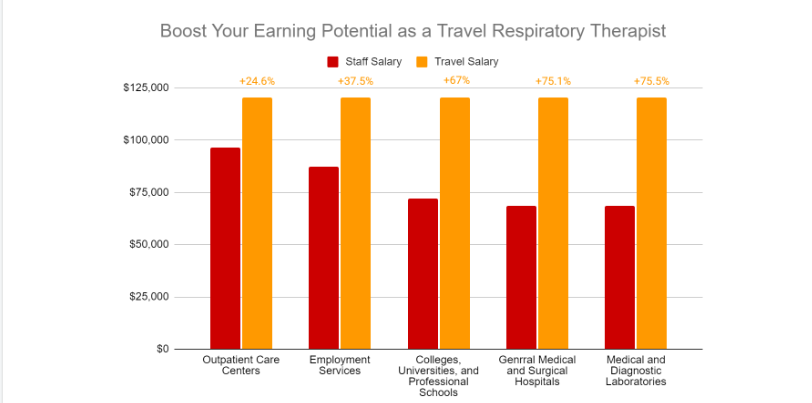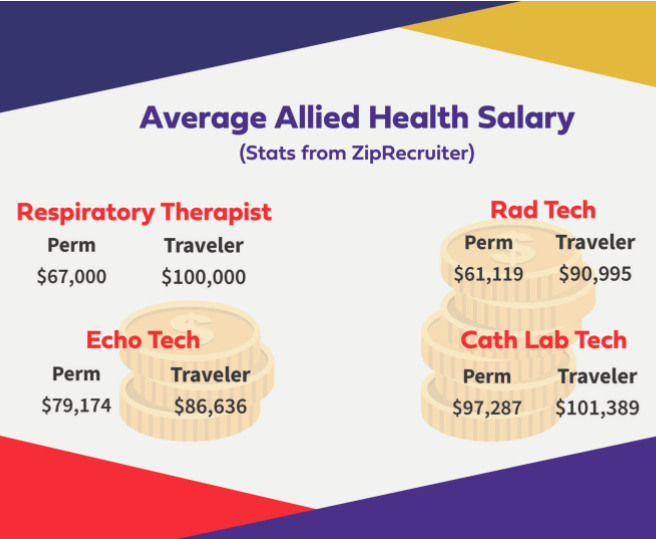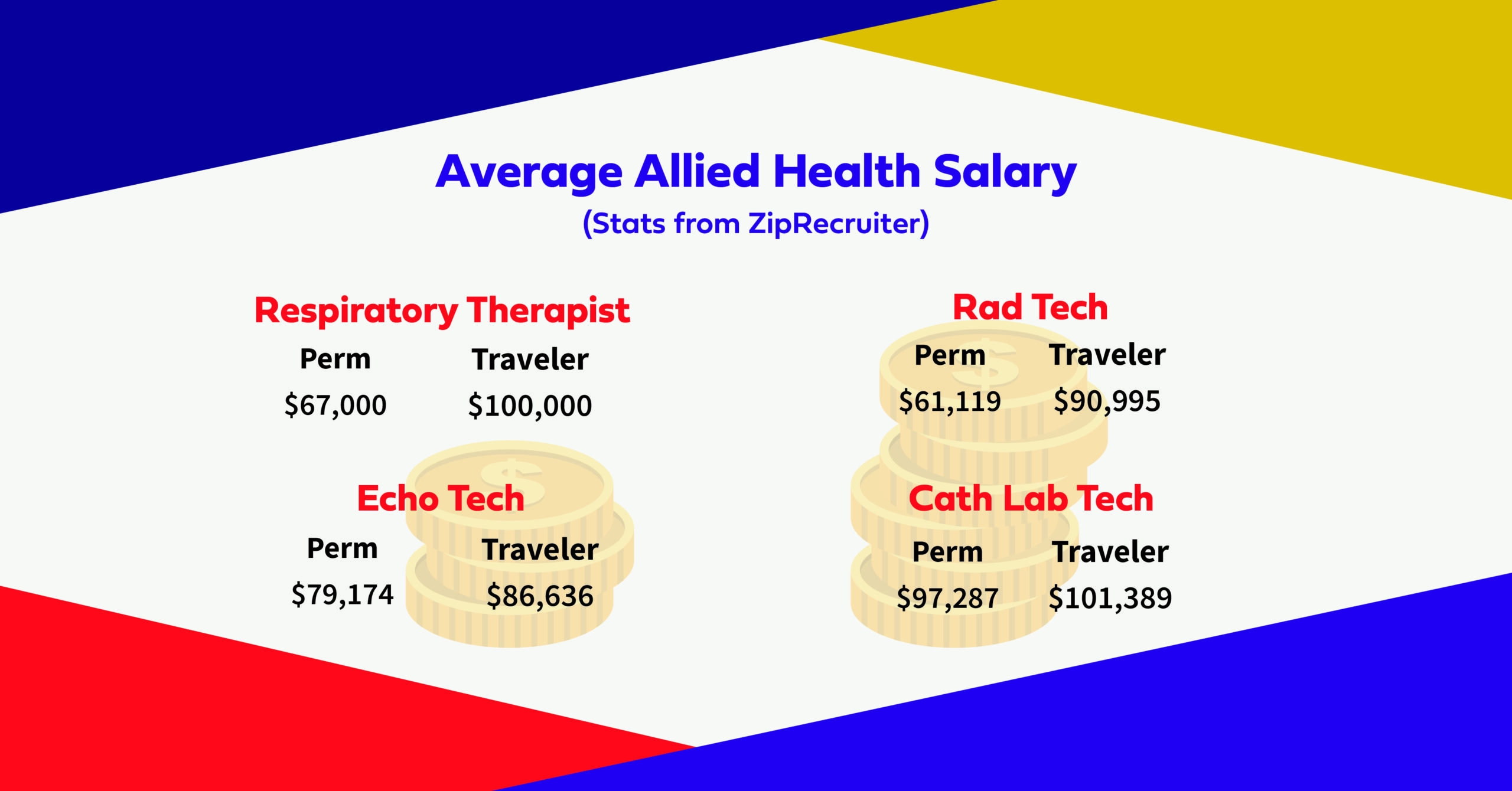Are you a respiratory therapist considering a shift to travel therapy? Many therapists are drawn to the allure of adventure, new experiences, and the potential for increased earnings. In this guide, we’ll explore everything you need to know about the salary of a traveling respiratory therapist, alongside personal experiences and travel tips that will prepare you for your next journey!
Understanding the Role of a Traveling Respiratory Therapist
A traveling respiratory therapist is a healthcare professional who provides respiratory care in various medical settings while traveling to different locations. This role offers flexibility, adventure, and often, higher pay than permanent positions. As a traveling therapist, you’ll step into roles in hospitals, clinics, or even outpatient facilities that require your expertise.
What Does a Respiratory Therapist Do?
Respiratory therapists are responsible for assessing, treating, and caring for patients with respiratory issues. Their tasks typically include:
- Administering oxygen therapy and medications as per physician orders.
- Performing diagnostic tests like spirometry.
- Managing ventilators for patients who require mechanical assistance to breathe.
- Educating patients about respiratory health and treatments.
- Collaborating with a team of nurses and physicians to provide effective care.

Traveling Respiratory Therapist Salary Overview
Current Salary Trends

The salary of a traveling respiratory therapist can vary significantly based on location, facility type, experience, and travel contracts. According to recent data, the average annual salary ranges from $70,000 to $100,000. Below is a breakdown of potential earnings based on experience level:
| Experience Level | Annual Salary Range |
|---|---|
| Entry-level (0-1 year) | $50,000 – $65,000 |
| Mid-career (2-5 years) | $65,000 – $85,000 |
| Experienced (5+ years) | $85,000 – $110,000 |
| Travel Contracts | $1,500 – $2,500 per week |

Factors Influencing Salary
Several factors can impact the salary of a traveling respiratory therapist:
- Location: Pay varies by state and city. Major metropolitan areas typically offer higher salaries.
- Facility Type: Working in hospitals often pays more than outpatient clinics.
- Specialization: Therapists with additional certifications or specializations may command higher rates.
- Contract Length: Longer contracts may yield better compensation.
- Shift Type: Night or weekend shifts can offer incentives.

Comparing Salaries: Traveling vs. Permanent Respiratory Therapists
While traveling respiratory therapists often earn higher salaries, it’s essential to compare their earnings with permanent positions. The following table highlights key differences:

| Criteria | Traveling Respiratory Therapists | Permanently Employed Respiratory Therapists |
|---|---|---|
| Average Salary | $1,500 – $2,500 per week | $65,000 – $85,000 annually |
| Job Stability | Less stable | More stable |
| Benefits | May vary by contract | Health insurance, retirement plans |
| Work Variety | High (multiple contracts) | Lower (same facility) |
Benefits of Being a Traveling Respiratory Therapist

Traveling as a respiratory therapist comes with numerous benefits that go beyond just the salary. Here are some advantages:
- Higher pay: Earn more than in a traditional role.
- Flexibility: Choose assignments based on your schedule.
- Variety of settings: Work in diverse locations and facilities.
- Travel opportunities: Explore new cities and states.
- Networking: Meet other healthcare professionals and expand your career connections.
Challenges of Being a Traveling Respiratory Therapist

While the perks are fantastic, being a traveling respiratory therapist isn’t without its challenges:
- Job insecurity: Contracts can be temporary, leading to uncertainty.
- Adaptation: Constantly adjusting to new environments and teams can be stressful.
- Benefits differences: Not all contracts offer the same benefits.
- Housing issues: Finding suitable accommodations can sometimes be challenging.
Travel Tips for Respiratory Therapists
As a traveling respiratory therapist, planning your journeys is crucial. Here are some practical tips to enhance your travel experience:
1. Research Locations
Before accepting a contract, research the location. Look for insights on cost of living, local amenities, and recreational activities. Websites like Numbeo can help compare the cost of living in your potential travel destinations.
2. Network with Other Travelers
Connect with other traveling therapists via social media or forums. They can offer advice, share experiences, and provide valuable connections.
3. Plan for Housing
Whether through a travel agency or securing your own housing, make sure you have comfortable accommodation secured before starting your assignment.
4. Keep Your Credentials Handy
As you change states or facilities, ensure that you have all necessary licenses and certifications updated and accessible.
Destination Highlights for Traveling Respiratory Therapists
Traveling not only enriches your experiences but also opens doors to exciting destinations. Here’s a list of top locations where respiratory therapists might find rewarding assignments:
1. San Diego, California
With its beautiful beaches and sunny weather, San Diego is a prime location for respiratory therapists. The city’s hospitals often have immediate openings due to the high demand for medical professionals.
2. Denver, Colorado
For those who enjoy the great outdoors, Denver offers hiking, skiing, and stunning mountain views. Therapists here can find work in both urban hospitals and rural clinics.
3. Orlando, Florida
Famous for its theme parks, Orlando also hosts numerous healthcare facilities. This area is perfect for therapists who enjoy a balanced life of work and leisure.
4. Seattle, Washington
Known for its coffee culture and lush landscapes, Seattle is a budding hotspot for healthcare professionals. The city faces a shortage of respiratory therapists, leading to competitive pay and perks.
Frequently Asked Questions (FAQs)
What is the average salary for a traveling respiratory therapist?
The average salary for a traveling respiratory therapist ranges from $70,000 to $100,000 per year, depending on various factors like location and experience.
Do traveling respiratory therapists get benefits?
Benefits vary by travel agency and contract. Some agencies offer health insurance, paid time off, and retirement plans, while others may not.
How can I find travel contracts as a respiratory therapist?
Websites like TravelNursing.com and agencies specializing in travel healthcare can help you find lucrative contracts.
What are the pros and cons of being a traveling respiratory therapist?
Pros include higher pay, flexibility, and the opportunity to travel. Cons may include job instability and the need for constant adaptation.
Can I travel with my family as a respiratory therapist?
Yes! Many therapists travel with family. Just ensure to research accommodations and schools if you have children.
Conclusion
Becoming a traveling respiratory therapist can be one of the most rewarding career moves you make. With the potential for a generous salary, the chance to explore new locations, and the opportunity to meet new people, there’s a lot to love about this career path. As you embark on your journey, remember to stay informed, plan accordingly, and make the most of every experience!